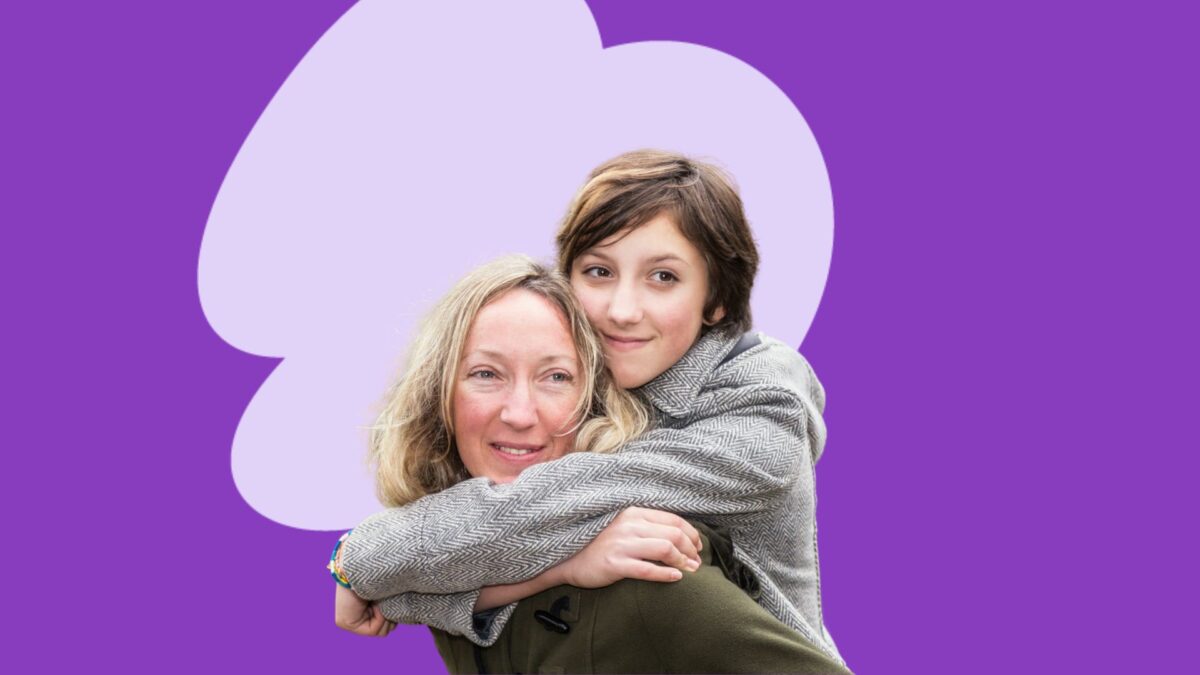The anxiety around coming out can really take a toll on your wellbeing. It’s not as easy as running out into the street, arms wide open, screaming “I’M GAAAAAYYYYY!” and calling it a day. Chances are, you sat down with someone you trust and had a super personal, vulnerable conversation about it. Which is a-m-a-z-i-n-g, by the way! But remember all of those feelings and nerves that were building up over time? The sleepless nights you spent tossing and turning, wondering: How will my life change when I come out? Yeahhh… that was a lot, huh?
Now that you have officially come out, maybe you just wanna move on with your life and be your true, authentic self. We get it! Buuut hold on a sec. You’ve been holding that part of you inside for so long, and it wasn’t easy. Maybe you doubted yourself, questioned how you really felt, and dealt with a lottttt of negative self-talk while coming into your sexuality. On top of that, you might have also struggled with how and when you would finally say those words. Not to mention, what your friends and family would say. Ughhh SO. MANY. EMOTIONS.
Speaking of this emotional rollercoaster, it’s time to look after YOU and practice some self-care. You might be thinking: Thanks so much, but what self-care will help me take care of myself mentally while coming out? We’re so glad you asked!
Here are some ways to practice self-care after coming out.
1. Keep Your Support Team Close
Sooo, you’ve come out. Not sure what’s next or where you fit in now? That’s okay! You have loved ones who accept you and love you for who you are, no matter what. They’ll be there for the ups and downs, and won’t make you feel any different after coming out. There’s no need to bury anything deep inside anymore. You can finally share things with them that you’ve been holding back, making your relationships that much stronger. And that’s pretty great! Give them a hug and talk to them about that stuff that you’ve always wanted to.
2. Set Boundaries When Needed
Even though you might feel super lucky to have the people in your life show support after coming out, their support can also feel totally overwhelming. Ah, the flip side of the coin! If there are things you’re not ready to talk about yet, or you’re not comfortable with your bestie setting you up with their gay cousin (even though they are pretty cute), guess what? That’s okay! You, and only you, get to decide what you’re comfortable with right now. Just because you’re technically out, doesn’t mean you wanna focus on it 24/7 or jump head-first into the dating scene. So make the people in your life aware of your boundaries!
3. Try Not to Take All Reactions Personally
This is a tough one, because some reactions might suck more than others. Maybe there was an awkward silence that dragged on foreverrr. Or they might have been like, “Duh, I knew that!” and then conversation was over. They might not have really shown any reaction at all, meanwhile you were sitting there thinking: Wait… they heard me say that I’m gay, right?
It can be weird, but sometimes people need time to process what you’ve told them. They might have been surprised, or just didn’t know in the moment what to say. That doesn’t mean they don’t support you and that your relationship with them will change. Some people aren’t the best at communicating their feelings, so try not to take it personally. Coming out was still brave of you, and we’re so proud!
Also, any negative reactions you get? Don’t take those personally, either. Those are not people you need in your life. And the ones who do accept you are gonna be there, always.
4. Keep a Journal
If you don’t journal already, we highly recommend it! (Did we mention we have an app for that?) Write about your experience with coming out: who you told, when you told them, and where. Put down how it felt to say the words out loud and how they reacted. Whether the experience was what you hoped for or not, it’s gonna feel great to put those emotions on paper. Maybe one day, you’ll wanna look back on those entries to see how far you’ve come! Grab a pen, a journal, and let. it. out.
5. Find a Mentor
Maybe there is someone in your office or class who is part of the LGBTQ+ community, or maybe there is someone in your local community who you’ve been following on social media. Finding someone who’s been out for longer than you have can be really helpful when you’re navigating this new journey. As their protégé, they’ll give you advice, share their experiences and introduce you to other people in the community. We could all use a little guidance. So don’t be shy! Reach out. They’ve been in your position and would probably love to help you out.
6. Move at Your Own Pace
Now that you’re part of the LGBTQ+ community, maybe you’re not sure where you fit in. Reading up on the history, the culture, the movements, and participating in events like Pride Month can be a lot to take in as someone who is newly out. There’s a whole new world and group of diverse people that you’re aligning with, and that’s super exciting! But it can also be really overwhelming and intimidating so we want to make sure that you move at your own pace. Keep checking in with yourself to see how you’re feeling about all of the excitement and give yourself time to process all the emotions coming up.
7. Keep Learning About Yourself
Now that you’re open with your sexual identity, you might be feeling like: Okay… now what? Good news! This is a great chance for you to try new things that you never let yourself do before you came out. Maybe you’ve always wanted to rock a rainbow knit sweater or express yourself by styling your hair a certain way. Or maybe there have been clubs and hobbies you’ve been wanting to join, but you held yourself back until now. You weren’t ready to draw attention to yourself or have anyone draw conclusions about your sexuality based on your looks, the music you like, or what you like to do for fun. Not that anyone should be doing that, but you know people. If you feel comfortable exploring those interests now, we’re so so excited for you!
8. Meet New People in the Community
If you don’t have anyone one in your life who can relate to you, expanding your friendships to the LGBTQ+ community is a great idea! Plus, you might be able to have conversations you’re not ready to have with your straight friends yet. You’ll learn so much about yourself when you’re surrounded by people who make you feel 100% comfortable as you are. Honestly, self care after coming out can also look like this. It’s about asking yourself what you might need in that moment and then doing your best to give yourself that. This could be meeting a new group or it could be spending time with yourself! It’s your call!
We hope these post-coming-out self-care tips help! Remember: we’re rooting for you because you deserve the best and nothing less.











